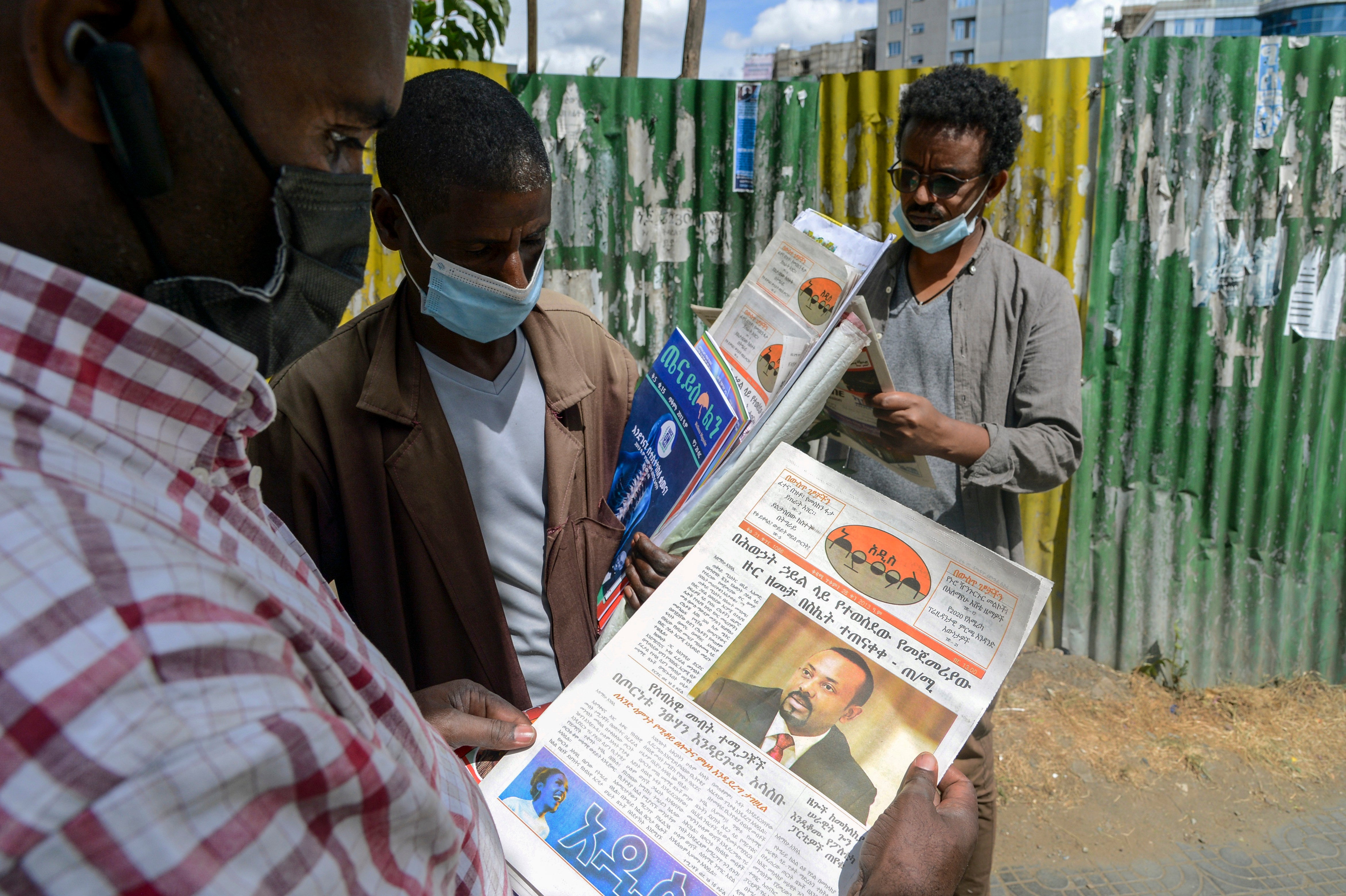Ethiopia says its jets are 'pounding' targets in Tigray
An Ethiopian military official says the air force is “pounding targets with precision” as the federal government continues its offensive against the defiant northern region of Tigray and no clear route to peace is yet seen

Your support helps us to tell the story
From reproductive rights to climate change to Big Tech, The Independent is on the ground when the story is developing. Whether it's investigating the financials of Elon Musk's pro-Trump PAC or producing our latest documentary, 'The A Word', which shines a light on the American women fighting for reproductive rights, we know how important it is to parse out the facts from the messaging.
At such a critical moment in US history, we need reporters on the ground. Your donation allows us to keep sending journalists to speak to both sides of the story.
The Independent is trusted by Americans across the entire political spectrum. And unlike many other quality news outlets, we choose not to lock Americans out of our reporting and analysis with paywalls. We believe quality journalism should be available to everyone, paid for by those who can afford it.
Your support makes all the difference.An Ethiopian military official says the air force is “pounding targets with precision” as the federal government continues its offensive against the defiant northern region of Tigray and no clear route to peace is yet seen.
Maj. Gen. Mohammed Tssema in a Facebook post on Monday also denied as “totally wrong” a claim by the Tigray regional government on Sunday that a fighter jet had been shot down.
The Tigray government confirmed the federal government’s aerial assault, saying in a Facebook post that the air force had carried out more than 10 aerial attacks so far.
It remains unclear how many people have been killed in the fighting that erupted last week in Tigray as the government of Nobel Peace Prize-winning Prime Minister Abiy Ahmed comes under increasing international pressure to calm tensions.
But Abiy has shown no sign of opening talks with the Tigray regional government, which his government regards as illegal after the Tigray Peoples Liberation Front, which once dominated Ethiopia’s ruling coalition, broke away from it last year. The Tigray regional government felt marginalized by Abiy’s political reforms and defied the federal government by holding a local election in September.
Abiy on Monday again sought to calm concerns that the deadly confrontation could slide into civil war and destabilize the strategic Horn of Africa region.
“Concerns that Ethiopia will descend into chaos are unfounded,” he said in a brief statement, and vowed that what he calls a law enforcement action “will wrap up soon.”
The United Nations and others have warned of a brewing humanitarian disaster affecting up to 9 million people.
Communications remain almost completely cut off in Tigray, with airports and roads closed, complicating efforts to verify either side’s assertions. Each accuses the other of starting the fighting.
The conflict in Tigray pits two heavily armed forces against each other in the heart of the strategic but vulnerable Horn of Africa region, and experts worry that neighbors including Sudan, Eritrea and Somalia could be sucked in.
Diplomats and others assert that the conflict in Tigray could destabilize other parts of Ethiopia, Africa’s second-most populous country with 110 million people, scores of ethnic groups, and other regions that have sought more autonomy even as the Nobel Peace Prize-winning Abiy tries to hold the country together with exhortations of national unity.